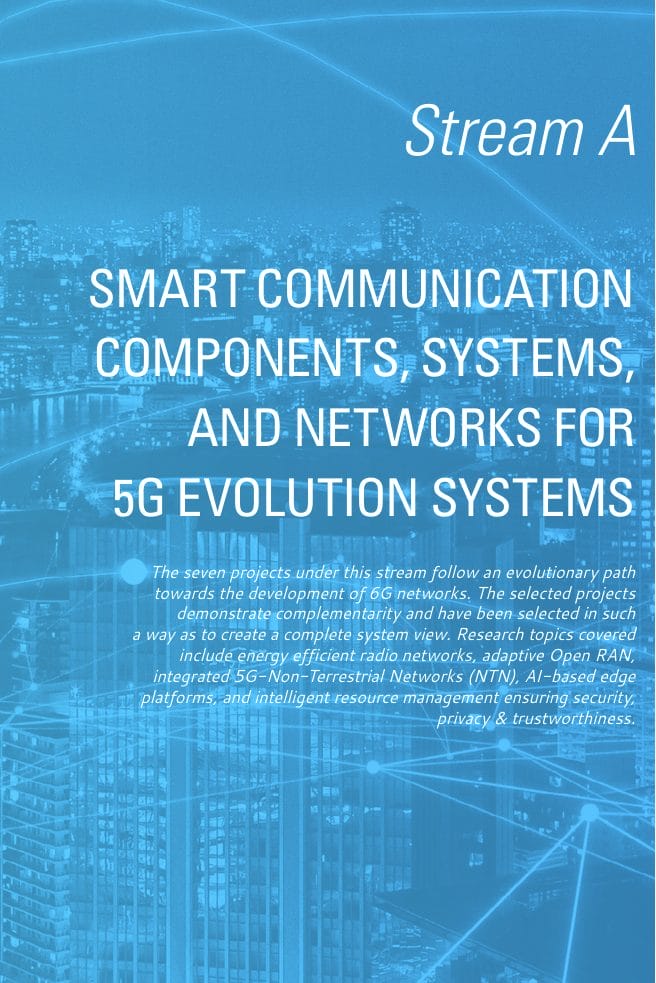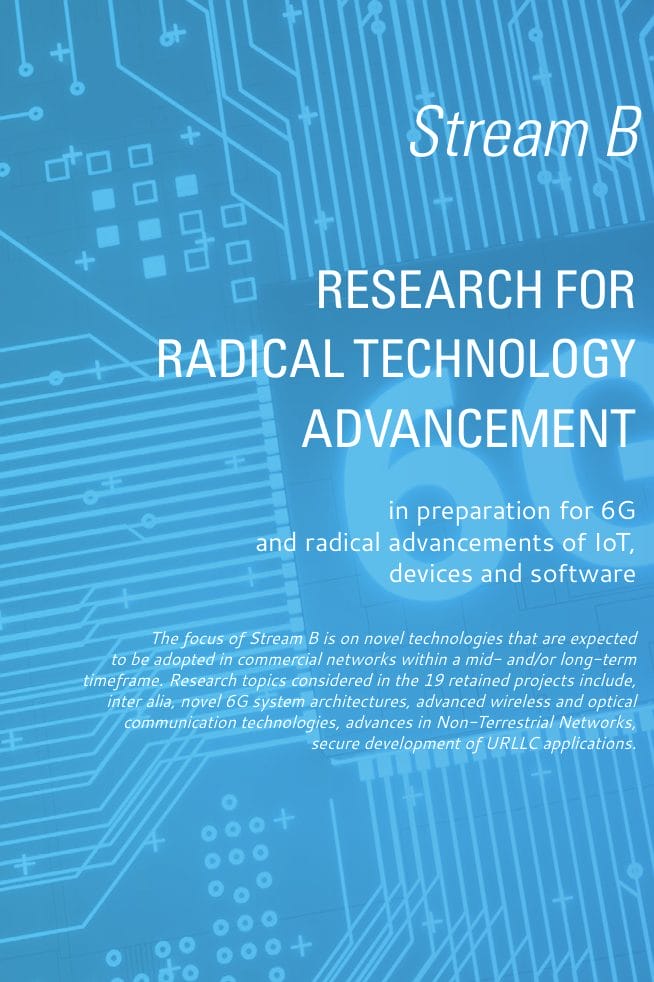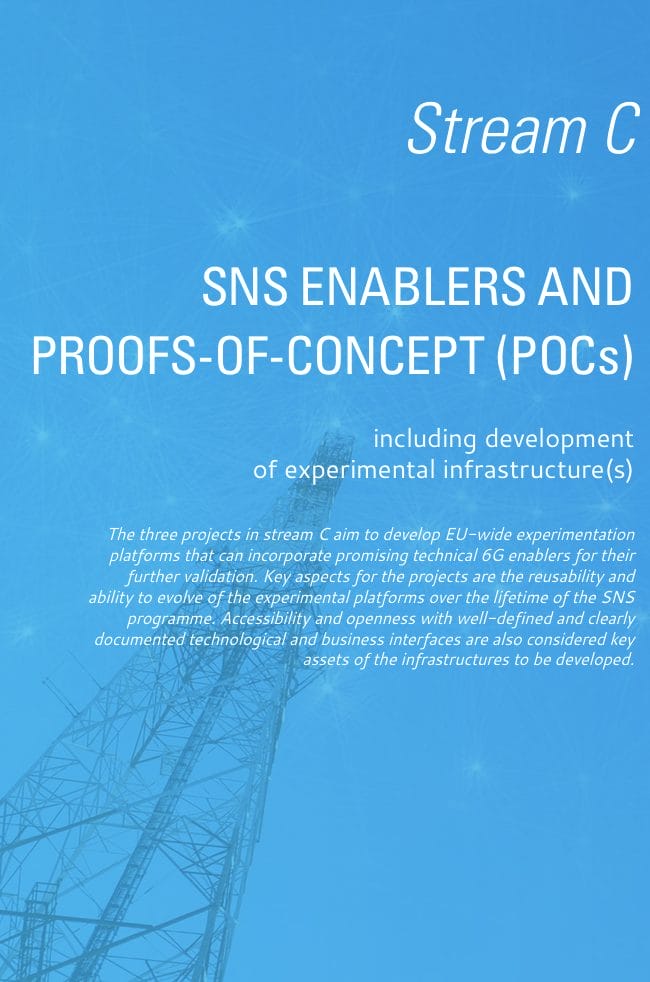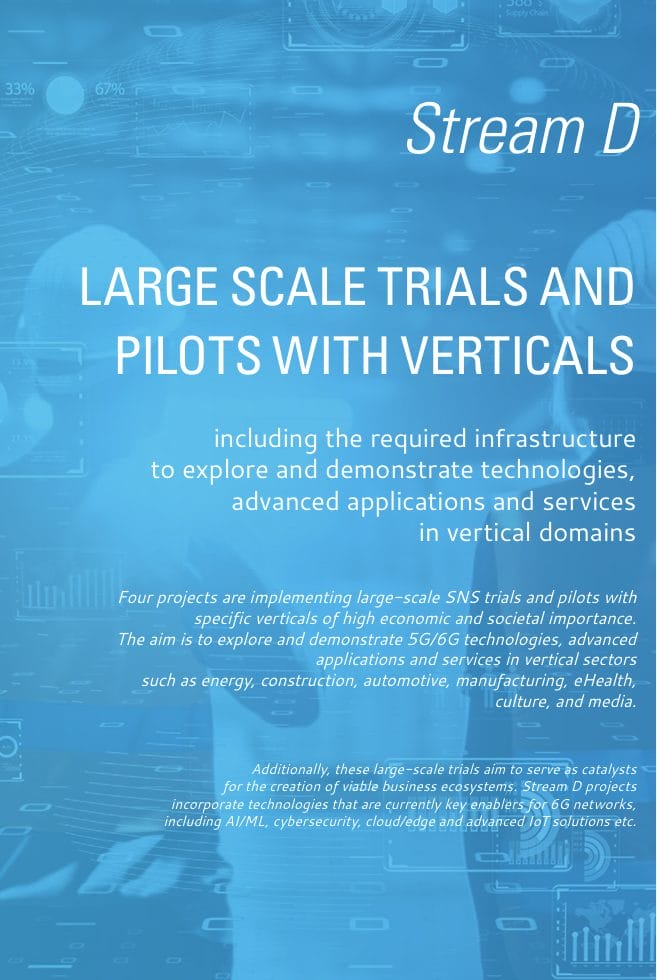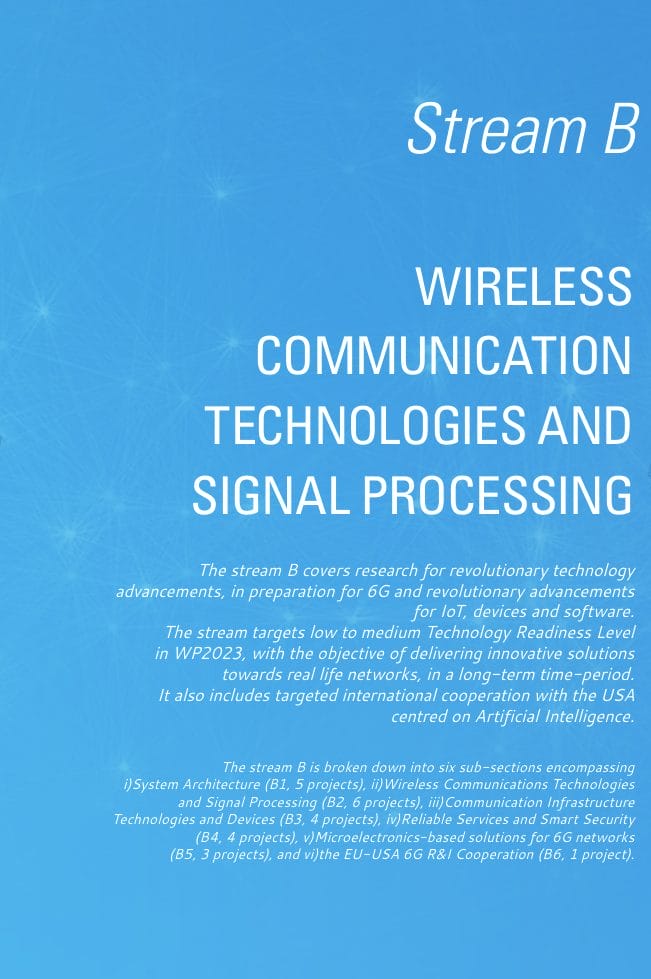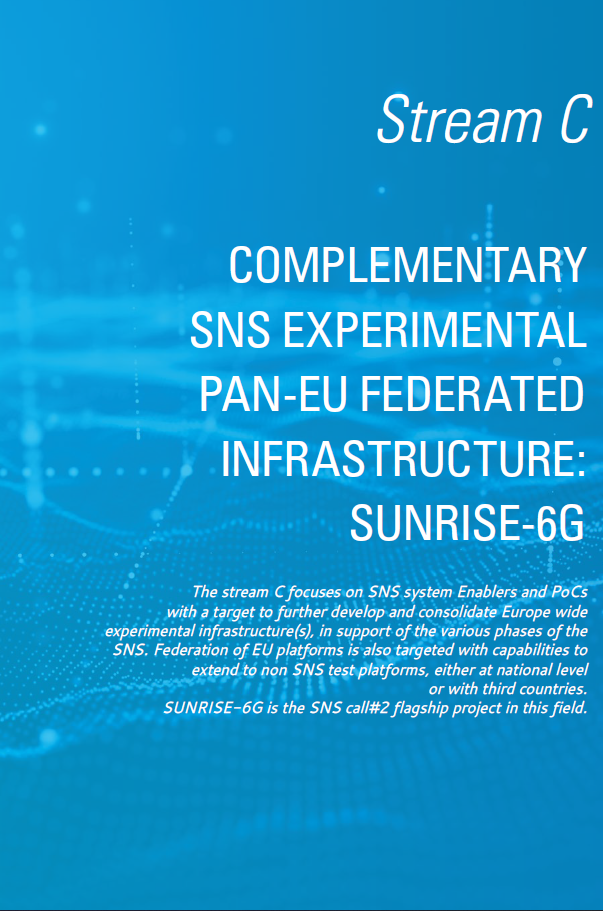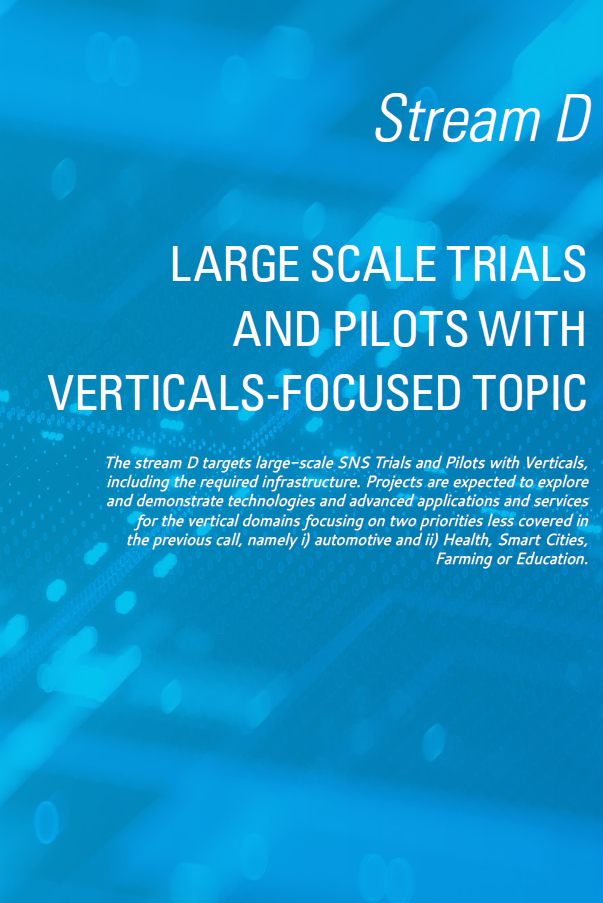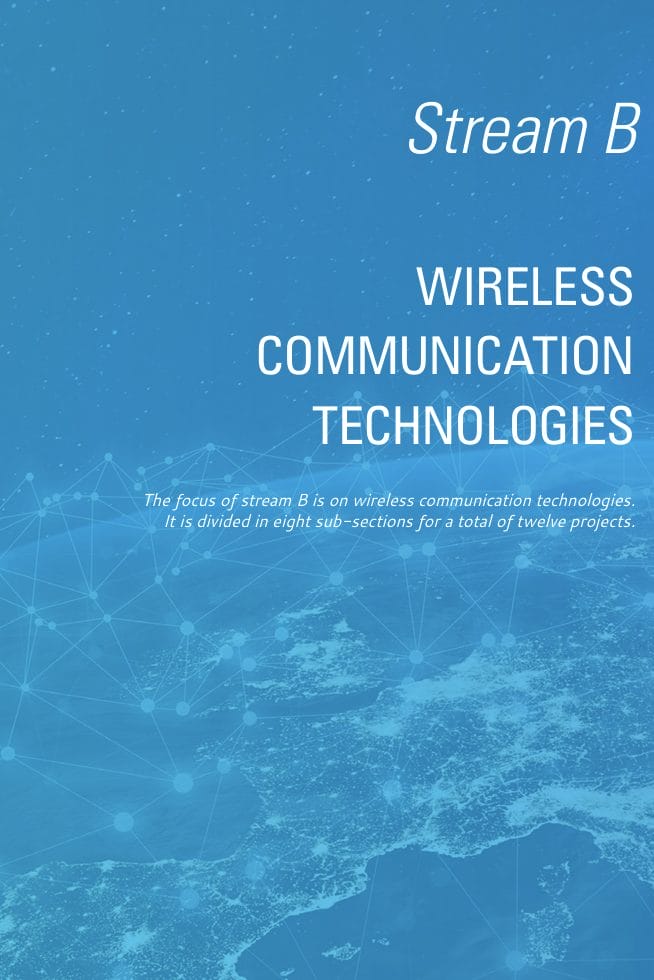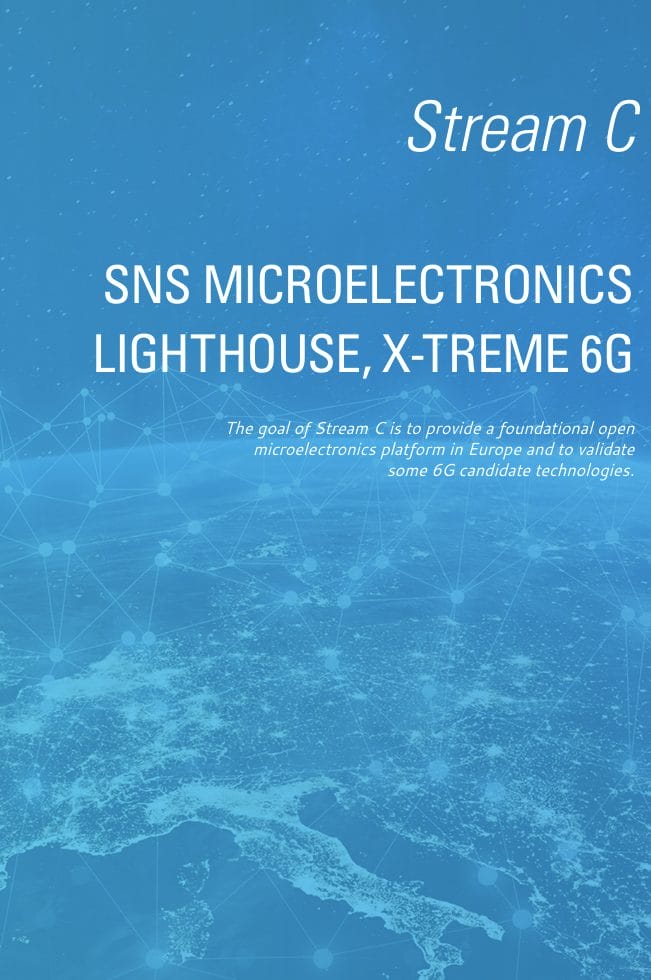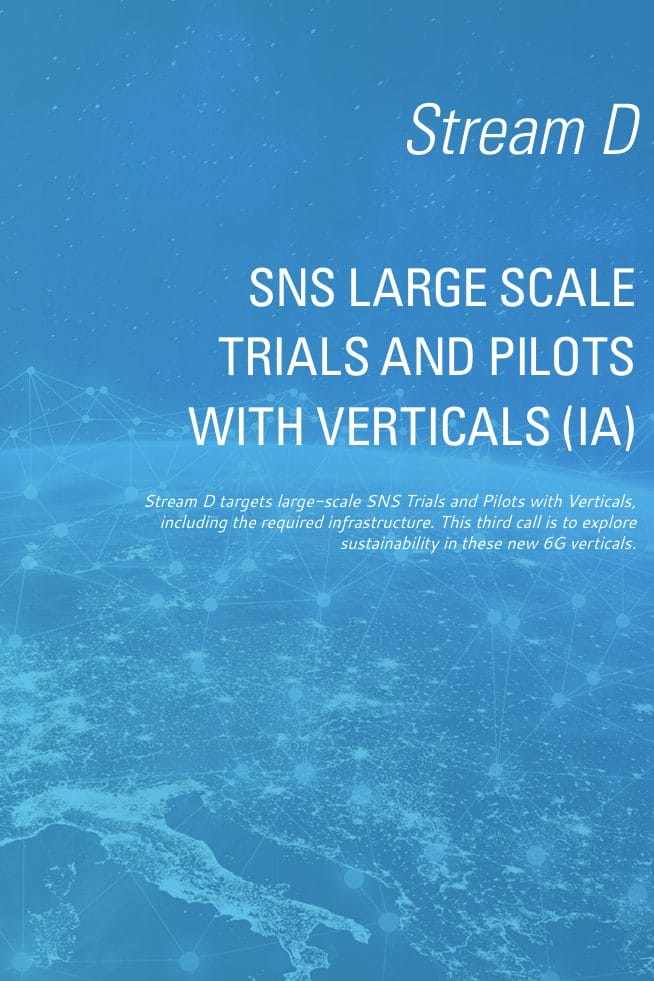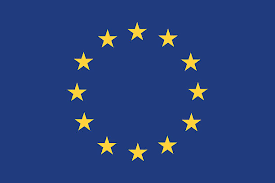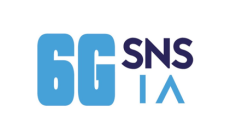The SNS JU Journal 2025 provides a comprehensive overview of the 79 research, innovation, and trial projects (out of 80) that form the core of the SNS JU’s portfolio. Backed by approximately €500 million in EU funding, these projects are pivotal to Europe’s goal of becoming a global leader in 6G technology, while also advancing the rollout of 5G. This portfolio reflects the strong commitment of European policymakers, industry stakeholders, and researchers to establishing a robust, competitive, and sustainable digital infrastructure.

Foreword from the Smart Networks and Services Joint Undertaking (SNS JU)
![]() As we enter 2025, digital connectivity in Europe stands at a defining moment. The continued evolution of smart networks and services is not just an engineering challenge but a strategic imperative, one that underpins Europe’s economic competitiveness, technological sovereignty, and societal progress. The Smart Networks and Services Joint Undertaking (SNS JU), created under the Horizon Europe framework, remains at the forefront of this transformation, driving research, innovation, experimental platforms and large-scale trials that will shape the future of connectivity in alignment with European values. […] “
As we enter 2025, digital connectivity in Europe stands at a defining moment. The continued evolution of smart networks and services is not just an engineering challenge but a strategic imperative, one that underpins Europe’s economic competitiveness, technological sovereignty, and societal progress. The Smart Networks and Services Joint Undertaking (SNS JU), created under the Horizon Europe framework, remains at the forefront of this transformation, driving research, innovation, experimental platforms and large-scale trials that will shape the future of connectivity in alignment with European values. […] “
Erszébet Fitori,
Executive Director of the Smart Networks and Services Joint Undertaking
Introduction from the 6G Smart Networks and Services Industry Association (6G‑IA)
![]() The SNS JU is moving ahead at full speed; 16 new Research and Innovation (R&I) projects have started in January 2025 as part of Call 3 of the SNS JU, complementing the 35 Call 1 projects (operational since 2023) and 28 Call 2 projects (operational since 2024). This brings the total number of SNS JU projects to 79. The combined work and outcomes of these projects address a broad range of novel enabling technologies, Key Performance Indicators (KPIs) and envisioned use cases. These use cases cover a diverse set of vertical fields and are expected to drive global 6G developments and deliver impactful European solutions for next-generation networks and services. […]
The SNS JU is moving ahead at full speed; 16 new Research and Innovation (R&I) projects have started in January 2025 as part of Call 3 of the SNS JU, complementing the 35 Call 1 projects (operational since 2023) and 28 Call 2 projects (operational since 2024). This brings the total number of SNS JU projects to 79. The combined work and outcomes of these projects address a broad range of novel enabling technologies, Key Performance Indicators (KPIs) and envisioned use cases. These use cases cover a diverse set of vertical fields and are expected to drive global 6G developments and deliver impactful European solutions for next-generation networks and services. […]
Colin Willcock,
Chairman of the Board of the 6G‑IA, Vice-Chairman of the SNS JU, Vice-Chairman of the ETSI Board

Get to know the SNS JU projects per Calls
-
SNS Call 1 Projects
35 projects for 4 streams
-
SNS Call 2 Projects
28 projects for 3 streams
-
SNS Call 3 Projects
16 projects for 3 streams
SNS JU Call 1 Projects
The 35 SNS Call 1 projects started in January 2023 with four streams and two Coordination and Support Actions (CSAs). This section provides details on Call 1 SNS projects stream by stream and ends with the CSAs.
The seven projects under this stream follow an evolutionary path towards the development of 6G networks. The selected projects demonstrate complementarity and have been selected in such a way as to create a complete system view. Research topics covered include energy efficient radio networks, adaptive Open RAN, integrated 5G-Non-Terrestrial Networks (NTN), AI-based edge platforms, and intelligent resource management ensuring security, privacy & trustworthiness.
The focus of Stream B is on novel technologies that are expected to be adopted in commercial networks within a mid- and/or long-term timeframe. Research topics considered in the 19 retained projects include, inter alia, novel 6G system architectures, advanced wireless and optical communication technologies, advances in Non-Terrestrial Networks, secure development of URLLC applications.
The three projects in stream C aim to develop EU-wide experimentation platforms that can incorporate promising technical 6G enablers for their further validation. Key aspects for the projects are the reusability and ability to evolve of the experimental platforms over the lifetime of the SNS programme. Accessibility and openness with well-defined and clearly documented technological and business interfaces are also considered key assets of the infrastructures to be developed.
Four projects are implementing large-scale SNS trials and pilots with specific verticals of high economic and societal importance. The aim is to explore and demonstrate 5G/6G technologies, advanced applications and services in vertical sectors such as energy, construction, automotive, manufacturing, eHealth, culture, and media.
SNS JU Call 2 Projects
The 28 SNS Call 2 projects started in January 2024 or March 2024 in three streams or sub-streams and one CSA.
The stream B covers research for revolutionary technology advancements, in preparation for 6G and revolutionary advancements for IoT, devices and software. The stream targets low to medium Technology Readiness Level in WP2023, with the objective of delivering innovative solutions towards real life networks, in a long-term time-period. It also includes targeted international cooperation with the USA centred on Artificial Intelligence.
The stream C focuses on SNS system Enablers and PoCs with a target to further develop and consolidate Europe wide experimental infrastructure(s), in support of the various phases of the SNS. Federation of EU platforms is also targeted with capabilities to extend to non SNS test platforms, either at national level or with third countries. SUNRISE-6G is the SNS Call 2 flagship project in this field.
The stream D targets large-scale SNS Trials and Pilots with Verticals, including the required infrastructure. Projects are expected to explore and demonstrate technologies and advanced applications and services for the vertical domains focusing on two priorities less covered in the previous call, namely i) automotive and ii) Health, Smart Cities, Farming or Education.
SNS JU Call 3 Projects
The SNS JU Call 3 received an enthusiastic response, with requested grants totalling €863 million, more than 7 times the available funding. The 16 selected projects in Call 3 support 301 beneficiaries from 25 countries in developing and deploying next-generation network infrastructure, platforms, and services.
The focus of stream B is on wireless communication technologies. It is divided in eight sub-sections for a total of twelve projects.
This Call 3 stream B covers research for revolutionary and evolutionary technology advancements, in preparation for 6G and revolutionary and evolutionary advancements including IoT, devices and software. This Stream targets low to medium TRL in WP 2024, although slightly higher TRL in WP 2024 compared to WP 2023, to deliver innovative solutions towards real-life networks in a long-term period.
This stream focuses on SNS Enablers and Proof of Concepts (PoCs) used to further develop and consolidate experimental infrastructure(s), supporting the various phases of the SNS Partnership. Stream C developments in WP 2024 will mainly focus on integrating microelectronics and photonics, developed by related partnerships, in 6G experimental infrastructures.
Stream D projects target large-scale SNS Trials and Pilots with Verticals, including the required infrastructure. The aim is to explore and demonstrate technologies, advanced applications, and services for the vertical domains. During the second SNS phase, Stream D projects are expected to mostly rely on SNS Call 1 technologies, especially the infrastructures to be developed from Stream C projects. The goal is to gradually incorporate innovative 6G functionalities. From the societal point of view, stream D will highlight sustainability evaluations across verticals, validating the exploitation of 6G across different vertical sectors.
CSAs - Coordination and Support Actions
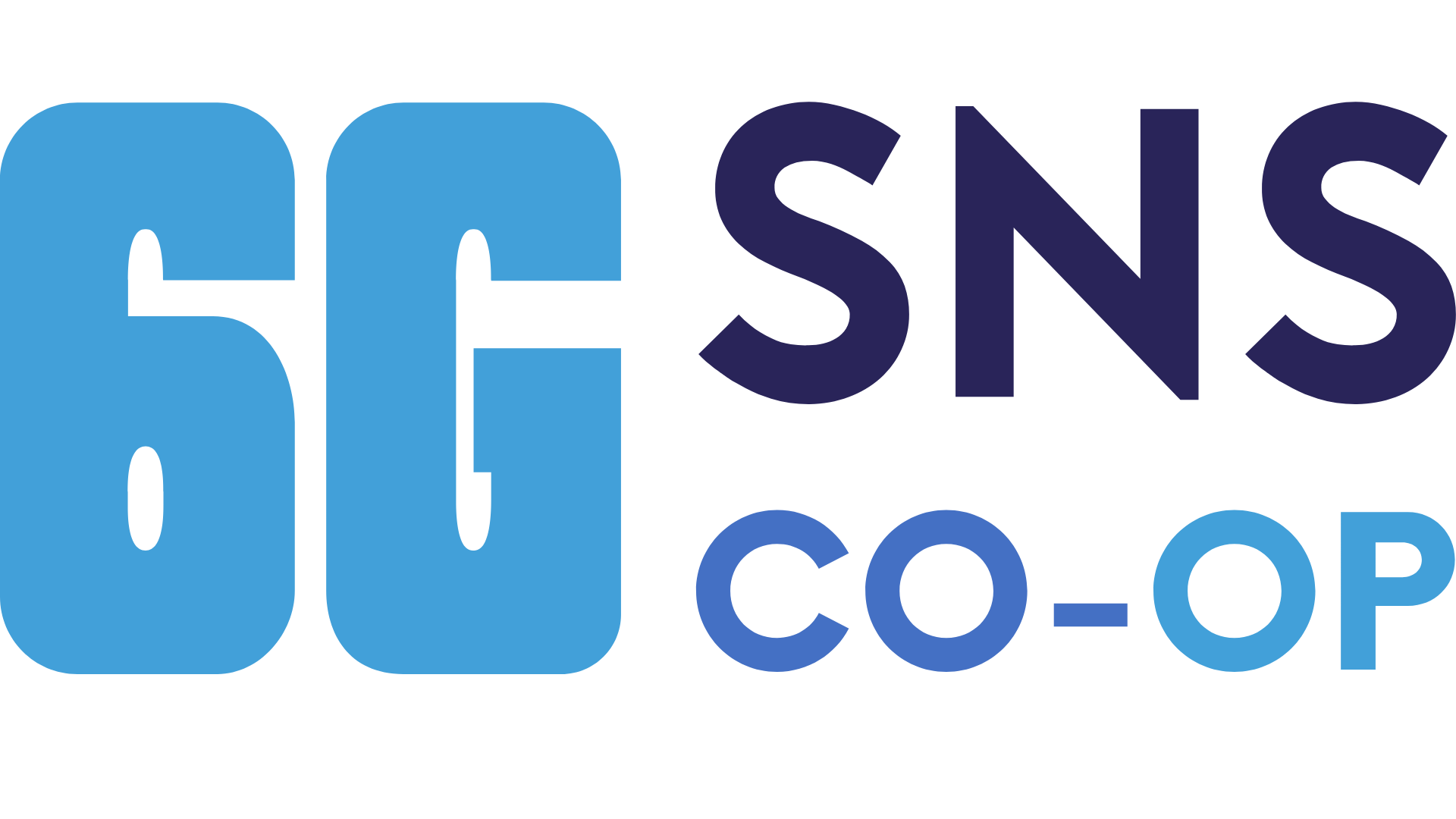 The SNS CO-OP project is devoted to supporting and facilitating the activities of the SNS Initiative under the Smart Networks and Services Joint Undertaking (SNS JU).
The SNS CO-OP project is devoted to supporting and facilitating the activities of the SNS Initiative under the Smart Networks and Services Joint Undertaking (SNS JU).
The SNS CO-OP project will achieve this by orchestrating and organising strategic activities, in collaboration with the SNS JU Office and the 6G Industry Association, to capture and promote the European Industry view on 6G, the achievements of the 6G SNS initiative and projects, and to promote the ambitions of the SNS JU.
 The 6G4Society project aims to address the tension existing between two parallel needs in terms of technological development of 6G: 1) securing technology performance objectives, and 2) ensuring that societal and sustainable values are properly embedded into technology.
The 6G4Society project aims to address the tension existing between two parallel needs in terms of technological development of 6G: 1) securing technology performance objectives, and 2) ensuring that societal and sustainable values are properly embedded into technology.
This will be done by engaging all key stakeholders within the Smart Networks and Services (SNS) ecosystem, but also by embracing civil society players, regulators, policymakers, media, and the public at large, to ensure correct and clear information about the expected impacts 6G technology will produce and induce is elaborated and disseminated.


